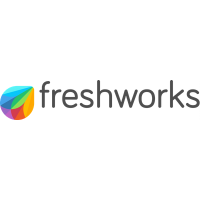
Freshworks
View Brand PublisherFreshworks and Lenskart decode the secret to acing customer experience for omnichannel retail
In a fireside chat during Freshworks’ RE:SOLVE summit, industry experts delve into why businesses need to invest in omnichannel strategies and how it could emerge as a potential tool to survive business challenges
For retail brands, the past two years have been all about adjusting to a new reality — remote workforces, accelerated digitisation, changing consumer behaviour and an uncertain economic outlook.
What has helped many businesses maneuver through the challenging business landscape was an omnichannel presence to boost customer experience. If there were a spike in the demand for online solutions, there were many who sought a personalised experience at stores. In fact, in view of the restrictions due to the pandemic, omnichannel strategies are necessary to keep up with the changing business outlook.
In an engaging fireside chat hosted by YourStory as part of RE:SOLVE summit, Ramneek Khurana, Co-Founder and VP-Product, and Vinod Chandramouli, Principal Consultant for Business Transformation at Freshworks talked extensively about the importance of having an omnichannel presence if you're retail brands and how one could boost customer experience by leveraging different tools of engagement.
Why Lenskart decided to combine traditional and digital channels
The market surveys conducted regularly by the Lenskart team showed that the most common problems that customers faced were getting an eye check up done and trying the glasses before buying them. “That’s around the time when apart from testing new ideas with technologies like augmented reality and machine learning, we also experimented with opening physical stores,” saysRamneek.
The move set the foundation of a brand ethos that always enabled Lenskart customers to seamlessly switch from online to offline purchases. At the same time, Lenskart is leveraging technology to boost customer experience in its stores. “When a customer visits a Lenskart store, our team is able to pull out a detailed profile with the customer’s permission to know more about previous purchases and shortlisted items,” he adds.
A pandemic of accelerated digital transformations and omnichannel retail
Vinod stressed how many of Freshworks’ clients had advanced their digital transformation plans during the COVID-19 pandemic so as to not let the crisis affect their brand loyalty and user engagement.
“An area about which we received several queries and where even customer behaviour changed was omnichannel retail. If a brand already had an omnichannel presence, it would be looking to expand to another omnichannel channel like brick and mortar stores,” he added.
With the recent market changes, having a physical presence has now become a part of an expansion strategy rather than being the main driver of business.
How WhatsApp could double up as a sales channel
From offering shopping assistance to answering queries on order status, Lenskart uses WhatsApp as a toll-free channel for customer interactions. Describing WhatsApp as a ubiquitous tool that has a very easy-to-use interface, Ramneek said, “The messaging app allows people to easily share pictures with their contacts. When they visit a Lenskart store, they can easily click a photograph of the product they like and send it to their friends and family to seek their approval.”
On the backend, Lenskart plugs in its recommendation engine which enables the sales team to pitch in relevant suggestions to the customer.
Another way Lenskart is leveraging WhatsApp is to remind customers about incomplete sales. “If a customer shops on Lenskart and doesn’t buy the product over the next five days, we drop in a message on WhatsApp to remind them about it and ask them if they want to get a free eye checkup done at their home or at our store. It also allows us to solve post-sale queries,” he explained.
Agreeing with Ramneek, Vinod said that the instant messaging tool has emerged as a unique platform to drive customer engagement. “For instance, brands could work with Freshdesk to create ads for Facebook. Whenever a potential customer clicks on these ads, they are redirected to a WhatsApp catalogue and the customer can then complete the transaction.”
He also said that WhatsApp has propped up as an impactful option for omnichannel models and has transformed the way customers interact with chatbots by giving them multiple choices of engagement. “In other words, you don’t always have to keep typing and drive the intent.”
Why CSAT and NPS are still the best metrics to gauge customer engagement
Describing customer satisfaction (CSAT) and net promoter score (NPS) as the ‘creme de la creme’ for customer engagement, Vinod said the two metrics highlight the effort the customer is making to reach out to a brand. “This takes into account self-service solutions, capabilities of bots and omnichannel presence, among other factors. We are now seeing brands looking at customer data to explore these areas and drive customer experience,” he said.
The fireside chat was a part of Freshworks’ RE:SOLVE, a summit for digital-first CX featuring 10 leading global brands, powerful discussion and insightful workshops on how businesses can unlock growth with technology-driven customer experience strategies.








